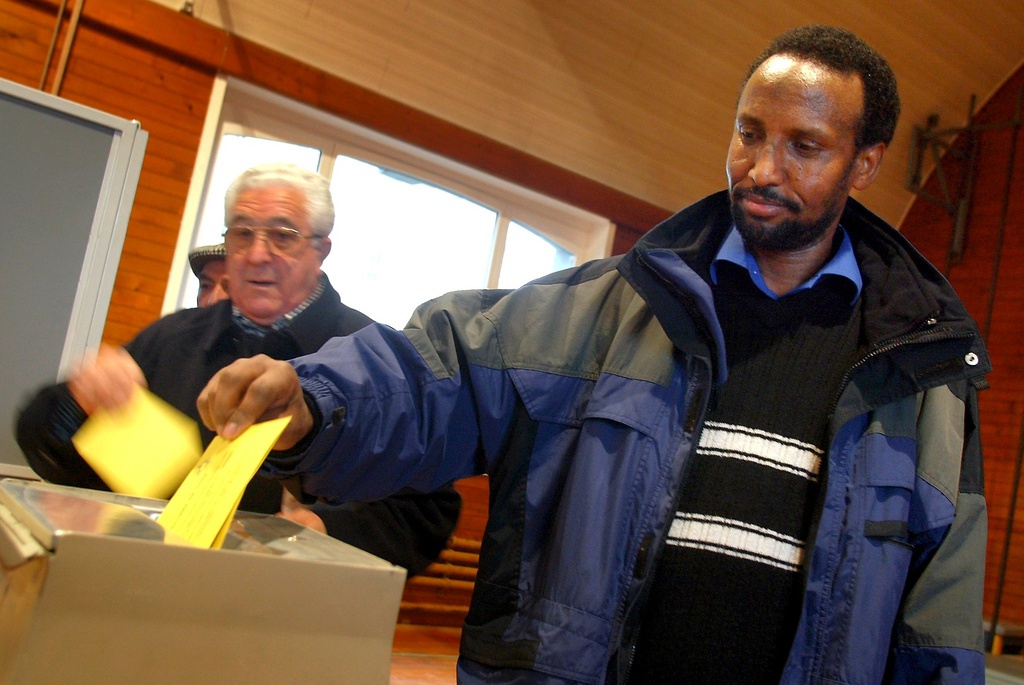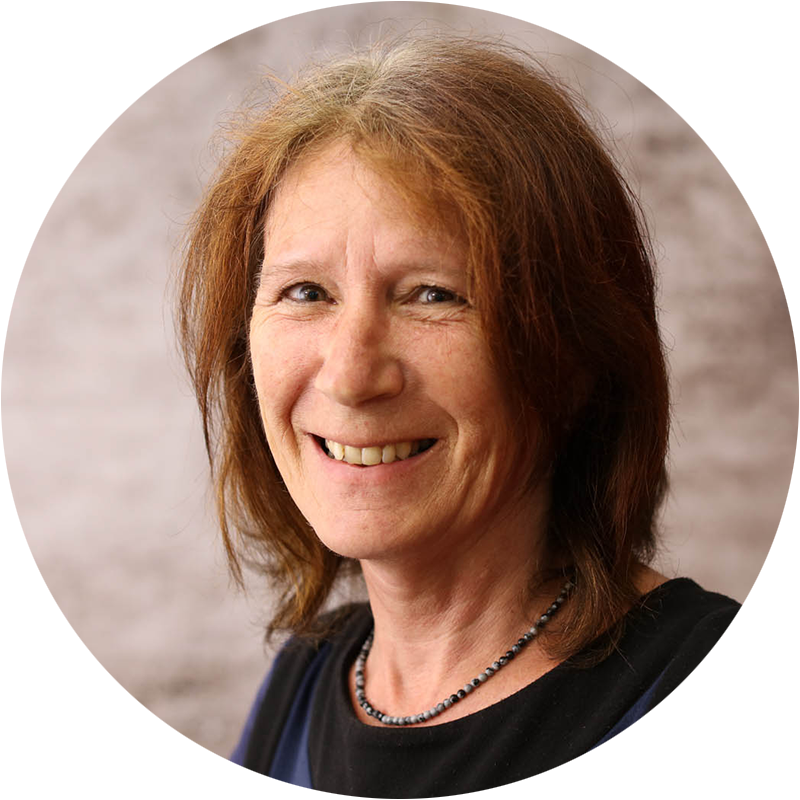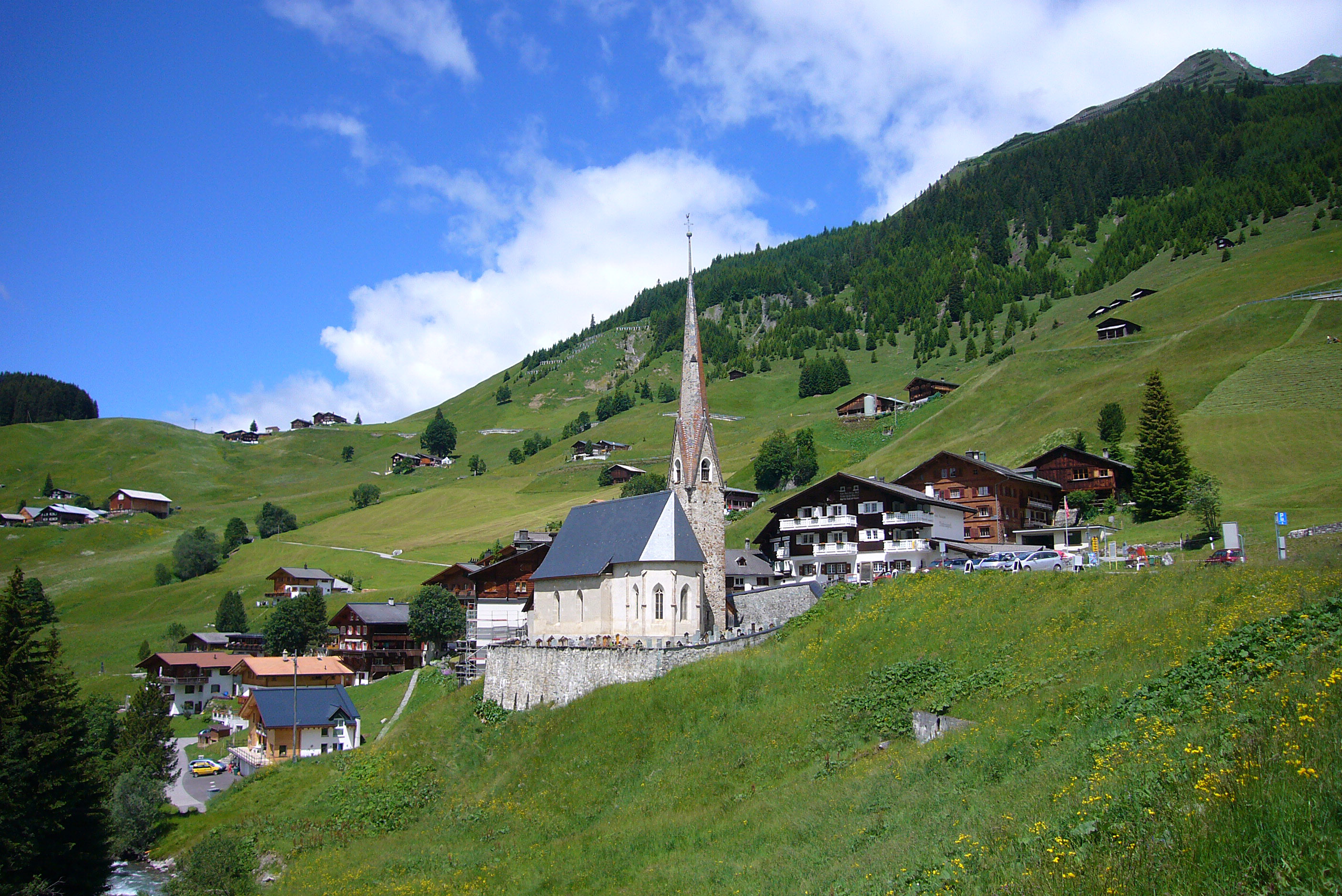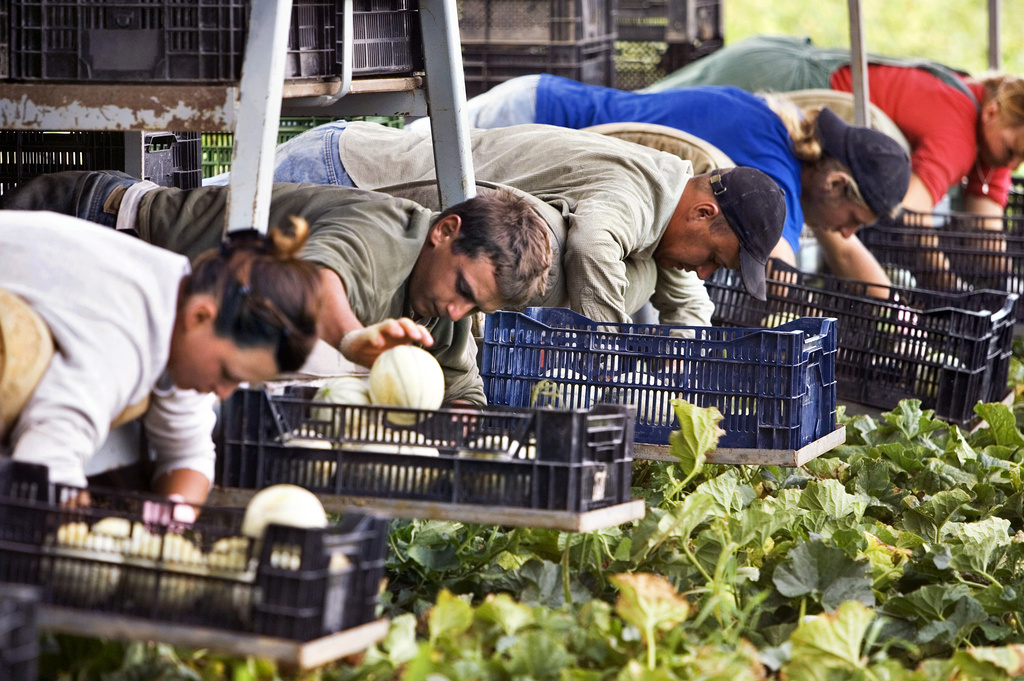The case for giving foreigners the vote, or not

Of the roughly eight million people living in Switzerland, 1.8 million are foreigners, largely excluded from the political process. Immigration expert Gianni d'Amato tells swissinfo.ch that this calls the nature of democracy into question.
A democracy that refuses to give a political voice to people who have contributed for decades to the country’s economy is less democratic that a state that gives them such rights, says d’Amato, head of the Swiss Forum for Migration and Population Studies at Neuchâtel University.
swissinfo.ch: The Swiss authorities keep stressing how important it is for the foreign population to integrate. But foreigners are in effect prevented from taking part in politics. Why is that?
Gianni d’Amato: There are two different ways of looking at the value and significance of participation. For some, participation is like the prize at the end of a long period of integration – in other words, getting civil rights depends on being naturalised.
But you can also see it the other way round: that it’s by participating – that’s to say, sharing in rights – that you become integrated into society.
You can see both these points of view in Switzerland too. In the west of the country, where five cantons allow foreigners to vote, participation is seen as a prerequisite for integration. But in German- and Italian-speaking Switzerland the view tends to be that first you should integrate, and then we’ll see what happens next.
swissinfo.ch: How does Switzerland compare with other places in Europe as far as political participation is concerned?
G. d’A.: Western Switzerland is at the top in a European comparison, while the rest of the country is around the lower part of the middle. The Scandinavian countries are progressive, and so are Belgium and the Netherlands. But there are other countries where foreigners are given no voice at all.
Within the European Union the status of citizen of the Union, which is relatively new, gives incredible rights. All EU citizens have the right to vote both at local level and for the European parliament. The idea that you can move from one state to another and not be discriminated against is a ground-breaking achievement.
swissinfo.ch: How is it that the foreign population is given more of a voice at communal and cantonal level in French-speaking Switzerland?
G. d’A.: The political culture in western Switzerland is different as regards the idea of universal individual rights. They have a liberal idea of belonging, which guarantees rights and builds on the future.
But in German-speaking Switzerland there is more of a belief, going back to Rousseau, of strengthening the common good. This concept of society first wants to be sure that a person is loyal before they deserve rights.
swissinfo.ch: In recent years initiatives to give foreigners the right to vote have been overwhelmingly rejected in various German-speaking cantons, and another currently pending in canton Zurich is likely to end the same way. Why is the time not yet ripe for the participation of foreigners?
G. d’A.: Basically the view in Switzerland is that citizenship, like participation, is regarded as a privilege that only citizens with the proper attitudes can appreciate. Privileges are valuable, and people don’t want to share them. If such a valuable thing is given to all and sundry, the value of this privilege becomes less.
swissinfo.ch: Is it also to do with fear of foreigners, of the unknown?
G. d’A.: It’s also a matter of not believing that people with an immigrant background can understand what Switzerland is about. The idea is that a person can only join in when they have been integrated into society. These reasons are cited to stop immigrants being able to join in voting.
swissinfo.ch: And how interested are the foreign population themselves? Do they want to vote?
G. d’A.: Of course you can get on fine without being given a say in affairs. For some people it may be more important to have a job and to be able to support their families than to get involved in local and regional questions. But there are plenty of Swiss who are not very interested in politics and public affairs.
There is also a symbolic aspect to the question: voting and having a say also means that you are recognised as existing, that you can speak out and take this or that position. In a democracy you are only recognised if you enjoy political rights.
swissinfo.ch: So we are living in a two-tier society?
G. d’A.: It’s not two tiers, but many. There are natives, the Swiss nationals, then there are the Swiss abroad, who are allowed a voice but don’t have to bear the consequences of their decisions, and then the immigrants who live in Switzerland and do have to bear the consequences but don’t have a voice. And then among the immigrants there are favoured groups like the expats who are treated with great consideration by the authorities.
This also has to do with this new kind of identification, that you want one kind of immigrant, and have to put up with the other. People tend to be sceptical about those that they have to put up with, and although they are sceptical about the others too, at least they are useful, because they make a greater contribution to the country’s prosperity.
swissinfo.ch: An alternative being offered in Zurich, for example, is foreigners’ councils. Is this a helpful option?
G. d’A.: It’s better than nothing, but it’s not democratic: the views of immigrants are passed on via specific representatives, who are partly selected by the authorities. They are model foreigners, who don’t make a nuisance of themselves but nevertheless have to be aware enough of what’s going on to point out problems that could arise.
But democracy thrives from argument and not from good will. We shouldn’t forget that. In democracy argument is of the essence, and if you are only admitted as a petitioner, or as an advisor, that’s not full democracy.
In canton Neuchâtel foreign residents have been able to vote at commune level since 1849, and at cantonal level since 2002.
Foreign residents can also vote at cantonal level in canton Jura.
In cantons Fribourg, Vaud and Geneva foreign residents have the vote at commune level.
Voting rights for foreign residents are much less widespread in the rest of Switzerland.
Only in Graubünden, Basel-City and Appenzell Outer-Rhodes can they vote at commune level.
Communes are only able to allow foreign residents the vote if this is permitted by the relevant cantonal constitution.
In canton Zurich a people’s initiative launched by the Second@s Plus association is still pending. It calls for foreign residents to be given voting rights at commune level. The signatures in support were handed in in August 2011.
It is regarded as having little chance of success, since the cantonal government has rejected it.
The government justifies its opposition on the grounds that political rights have traditionally been closely linked with citizenship in Switzerland.
However, the naturalisation process is complex and long: one condition for adults is that they must have been resident in Switzerland for 12 years.
Processing an application for naturalisation can take another two to three years, and if the applicant changes their place of residence, it can be dragged out yet further, depending on the canton.
(Translated from German by Julia Slater)

In compliance with the JTI standards
More: SWI swissinfo.ch certified by the Journalism Trust Initiative




You can find an overview of ongoing debates with our journalists here. Please join us!
If you want to start a conversation about a topic raised in this article or want to report factual errors, email us at english@swissinfo.ch.